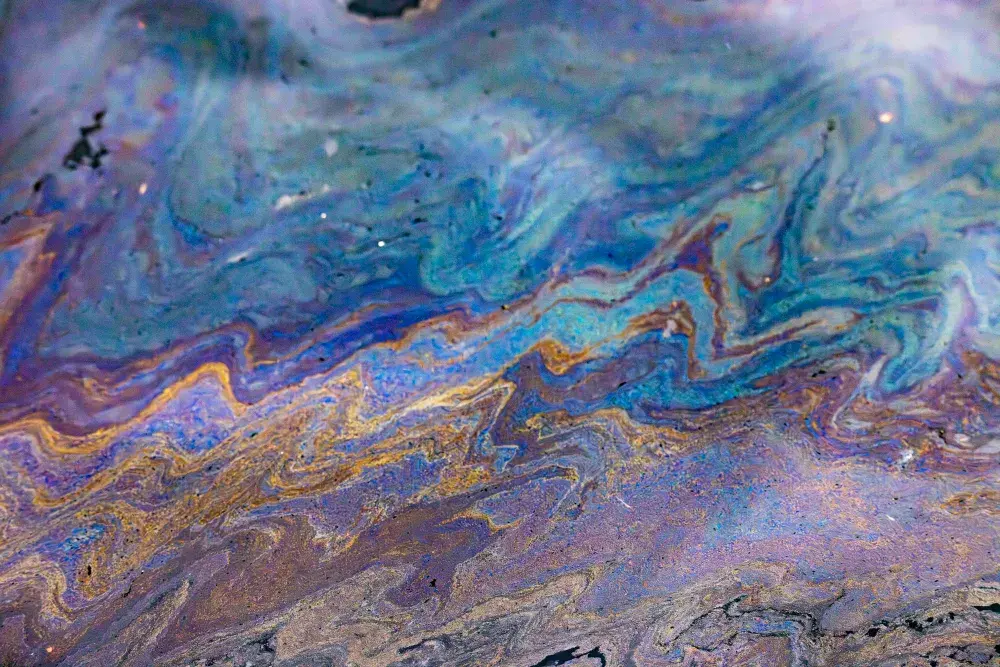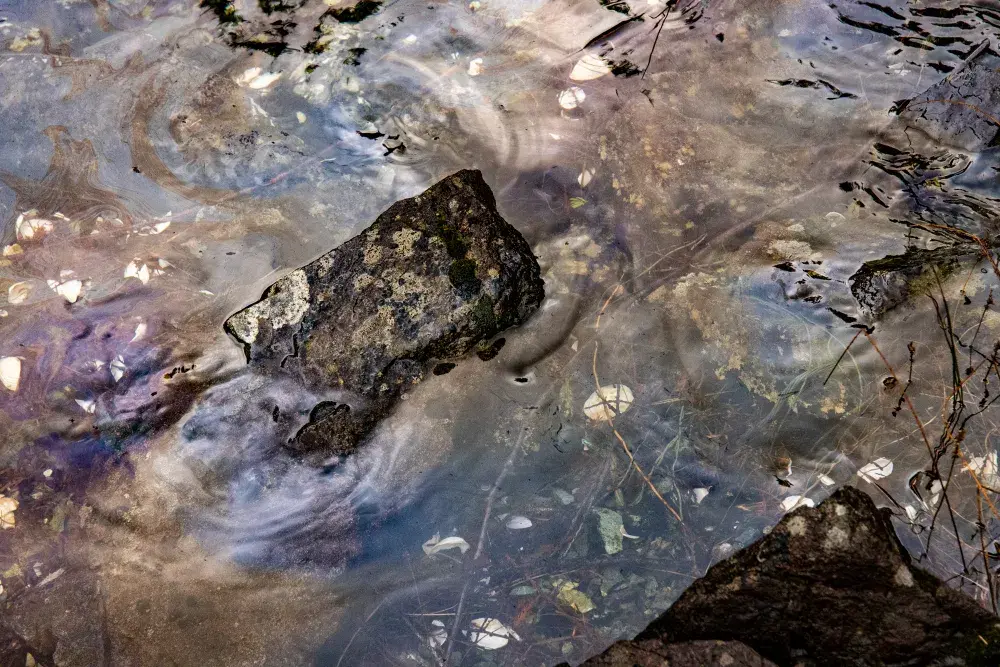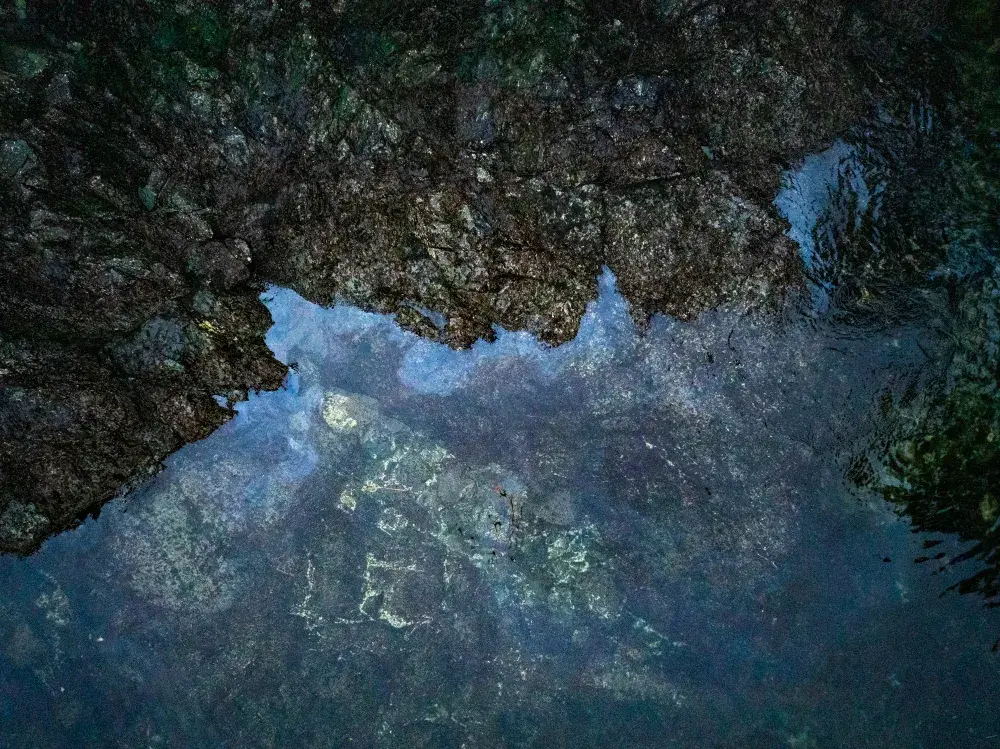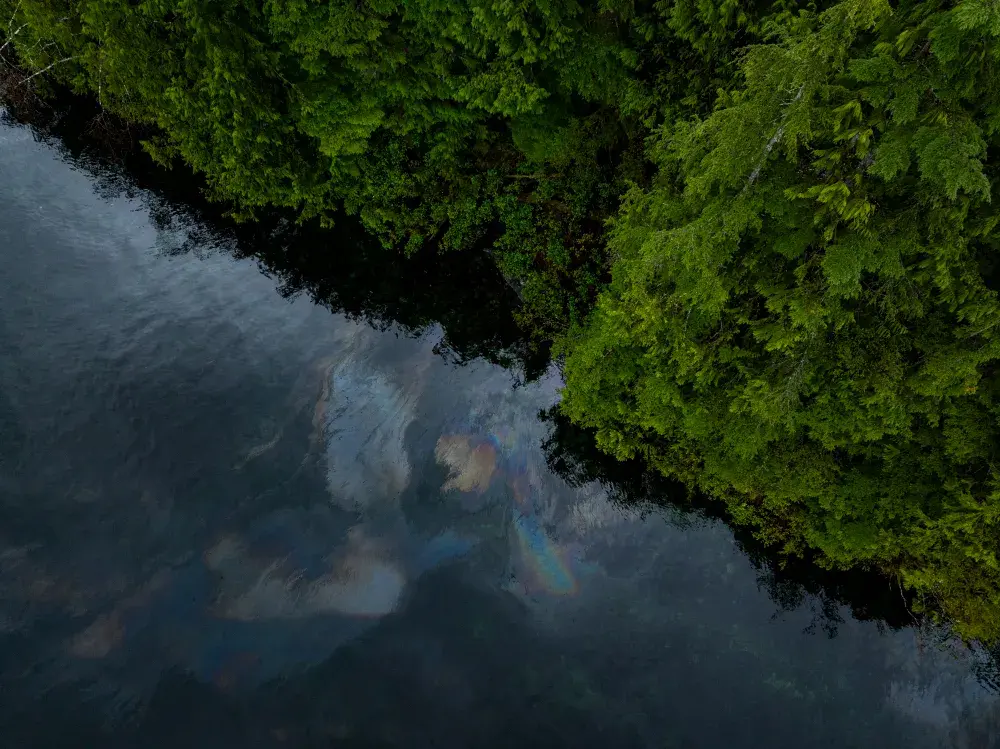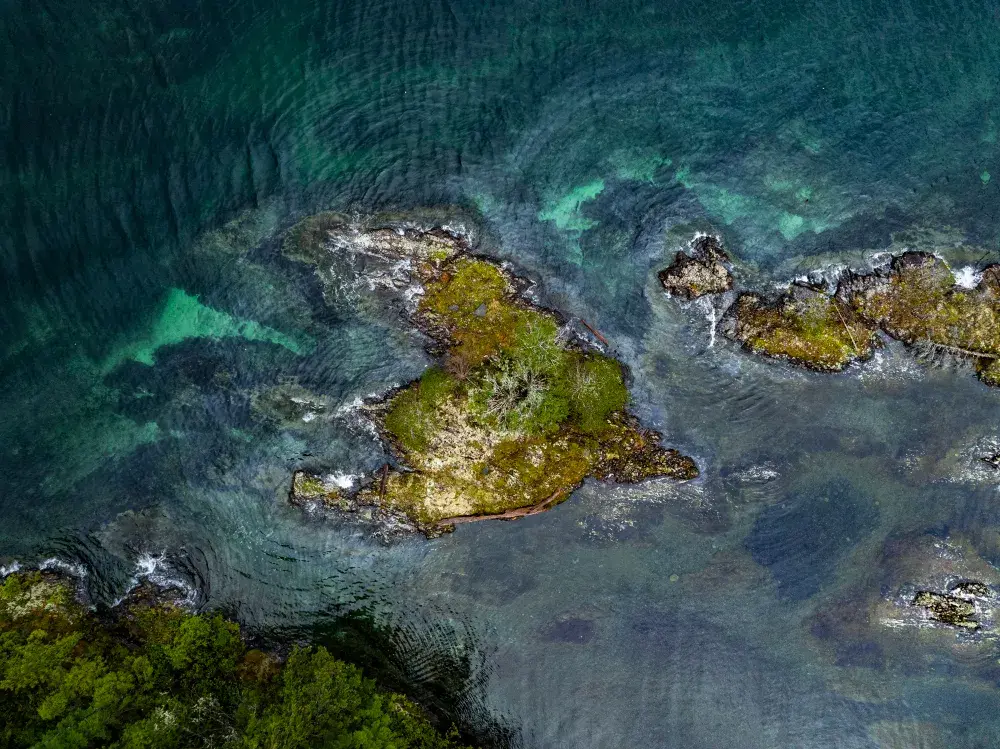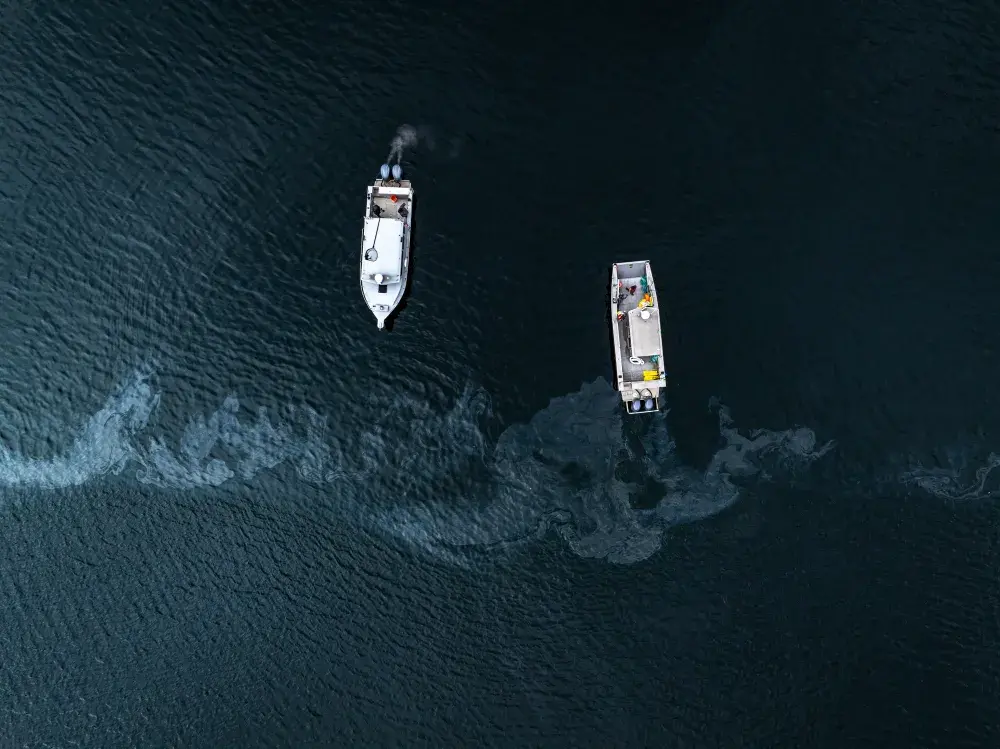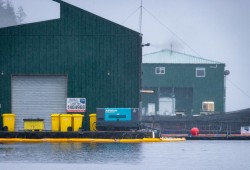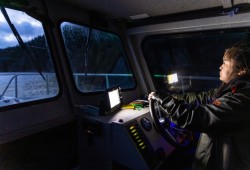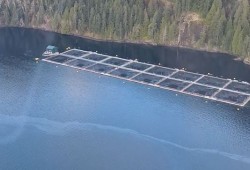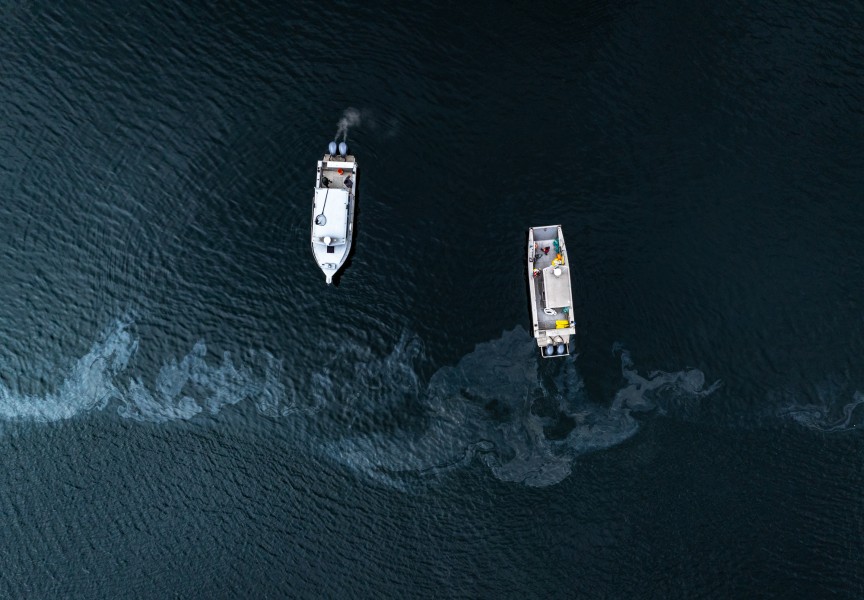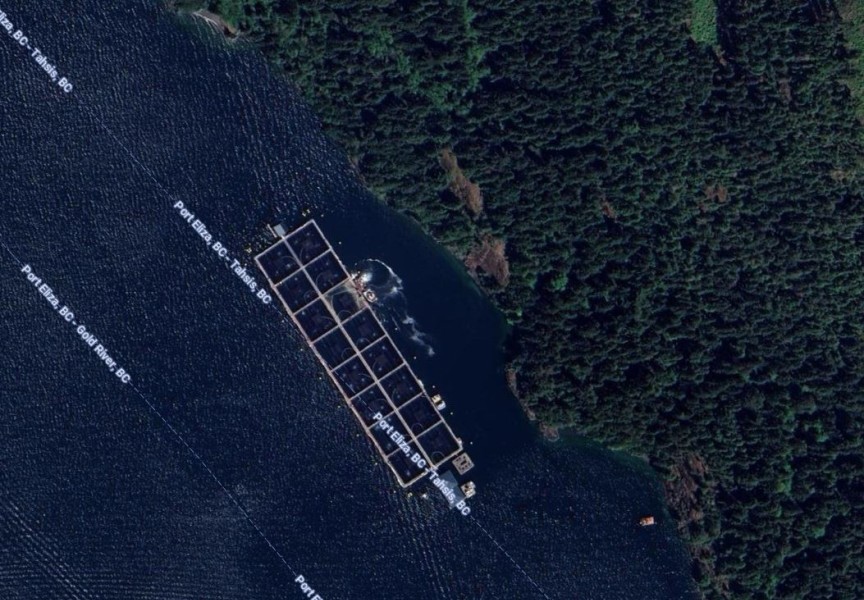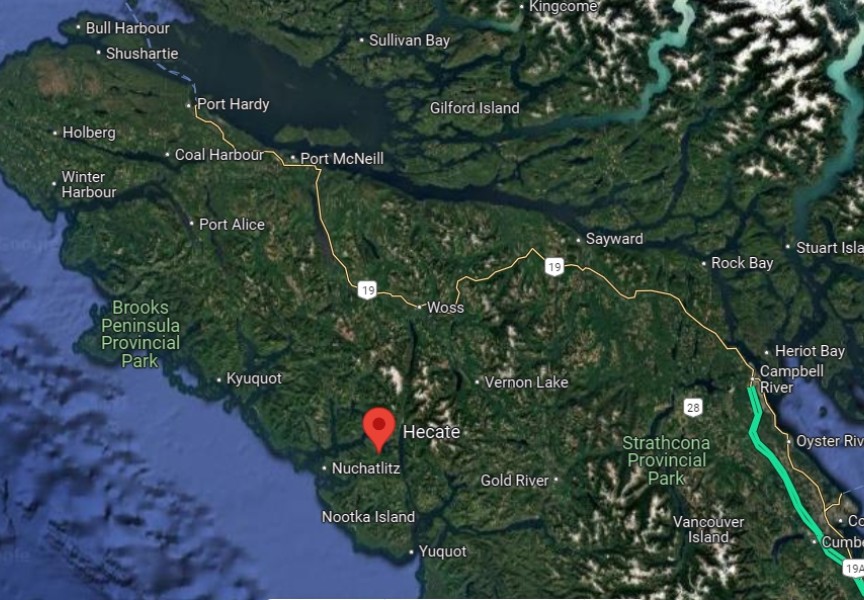Diesel spilled from a salmon farm near Zeballos has spread as far as the northern edge of Nootka Island, according to the Nuchatlaht First Nation, which is calling on the federal government to expedite the phasing out of net pens on the B.C. coast.
An estimated 7,000 to 8,000 litres of diesel fuel was reportedly spilled on Dec. 14 from a Grieg Seafood fish farm by Lutes Creek in Esperanza Inlet, which is in the territory of the Ehattesaht/Chinehkint First Nation. The spill occurred during a fuel transfer on a floating concrete platform, and is the result of human error, according to the B.C. Ministry of Environment and Parks.
On the day of the spill a storm hit Vancouver Island, spreading the thin sheen of oil through Nootka Sound. Diesel has been sighted at Steamer Point, which is on the northern edge of Nootka Island, according to Nuchatlaht Lands and Natural Resources Manager Roger Dunlop.
“The diesel has gotten into the rocks and sediments around Steamer Point,” he said in a Dec. 18 press release from the First Nation. “Yesterday at high tide diesel was coming out of rocks into an area busy with wildlife: marbled murrelets, sea ducks, sea otters and a stellar sea lion. Humpback whales were observed in the area. At Steamer Point we could smell the diesel in the air.”
“I fish out here regularly and I’m now afraid to eat anything by the looks of things,” said Judae Smith, a Nuchatlaht guardian and fisheries technician. “It’s hard to imagine how anyone could ever clean up this kind of toxic damage. It permeates everything and so much damage has already been done.”
The spill occurred during a time when locals would normally be harvesting clams for sustenance and sale to seafood markets. But the Ehattesaht quickly closed the clam harvest in the Zeballos Inlet until water and shellfish testing determines that the seafood is free of toxins.
The Ehattesaht will be “establishing a rigorous testing protocol to ensure it is understood where the fuel is” and if it can be cleaned up, stated the First Nation.
“I think dealing with this will take a lot of creativity, hard work and some real resources,” said Ehattesaht Chief Councillor Simon John.
Based out of the Ehattesaht administrative office in Zeballos, a unified command has been set up with participation from Grieg Seafood and multiple government agencies, as well as the Ehattesaht, Nuchatlaht and Mowachaht/Muchalaht First Nations. The unified command has deployed a unit to survey the area for marine mammals, and an update given Dec. 18 stated that none were seen close to the spill site. Other animals in the area seemed to be unharmed, as absorbent booms continue to be deployed to contain the spill.
“[A]ll animals recorded appeared healthy, with no signs of distress,” stated the update.
According to the US government’s National Oceanic and Atmospheric Administration, most of a diesel spill will normally evaporate within the first few days. There is also seldom any volume of oil for responders to recover from the ocean.
“Diesel is readily and completely degraded by naturally occurring microbes, under time frames of one to two months when there is sufficient oxygen,” stated the NOAA, which notes that the fuel can remain on shorelines for longer. “Diesel that has penetrated into shoreline sediments where conditions are not favorable for natural removal or degradation may persist for months to years.”
The spill has also reignited frustration over the prevalence of fish farms in B.C., most of which are in Nuu-chah-nulth territory off of Vancouver Island’s west coast. In June Fisheries and Oceans Canada renewed 66 finfish farming licences in the province, but as of June 30, 2029 open net pens - the aquaculture industry’s standard practice - will be banned in B.C.
This isn’t soon enough for Nuchatlaht Tyee Ha’wilth Kla-kwa-skum, Jordan Michael.
“I’m extremely upset that these fish farms are still even here despite our efforts to be rid of them,” said the hereditary chief. “We are always force-fed decisions to keep fish farms in our territory but we’re not going to tolerate that anymore.”
Grieg Seafood grows Atlantic salmon from its farms on the B.C. coast, with a licence to annually produce 23,400 tonnes for North American and Asian markets. Grieg runs 22 fish farms in the province, employing 180 people, according to information on the company’s website. Ten of these fish farms are in Nootka Sound and Esperanza Inlet.
While many First Nations are opposed to salmon farming, several have formal agreements with finfish aquaculture companies. Those with agreements in place include the Ehattesaht, Tla-o-qui-aht and Ahousaht, according to information from the Coalition of First Nations for Finfish Stewardship.

